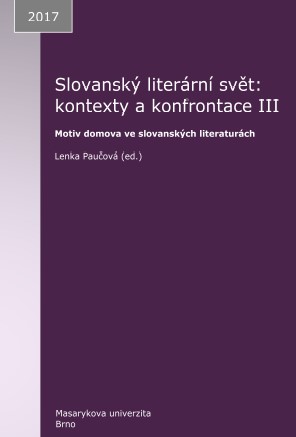Z otčiny na galeje a späť. K významovým a výrazovým dimenziám motívu domova v spisoch uhorských protestantských exulantov v 17. storočí
From the fatherland to the galleys and back. The meaning and expressive dimensions of the motif of home in the writings of Hungarian Protestant exiles in the 17th century
Author(s): Petra Rusňáková
Subject(s): Metaphysics, Hungarian Literature, 17th Century, Theory of Literature
Published by: Masarykova univerzita nakladatelství
Keywords: Baroque; home and exile; religion; persecution; metapsychical and sensual reality;
Summary/Abstract: Until the half of the 17th century Hungary was a country where even non-catholic religious communities were tolerated. Although in the second half of the 17th century the ruling dynasty of Habsburgs reacted more strictly to movements in Europe and inside the monarchy (Turkish occupation, thirty years’ war, anti-habsburg rebellions). In order to internally strengthen his empire, the monarch took steps related also to religion. Religious homogenity was at that time considered to be one of the country stability aspects. Due to that catholic Habsburgs decided to eliminate majoritarian protestant communities—evangelicals a. c. and the reformed (calvins). On the basis of events from this period there came to existence a new type of literature reflecting mentioned facts. Authors were scholars and priests that became exiles or even galleymen. In connection with that they work explicitly or implicitly with a motif of home in their writing. The paper focuses on analysis of semantic and expressive dimensions of this motif.
Book: Slovanský literární svět: kontexty a konfrontace III: Motiv domova ve slovanských literaturách
- Page Range: 99-106
- Page Count: 9
- Publication Year: 2017
- Language: Slovak
- Content File-PDF

